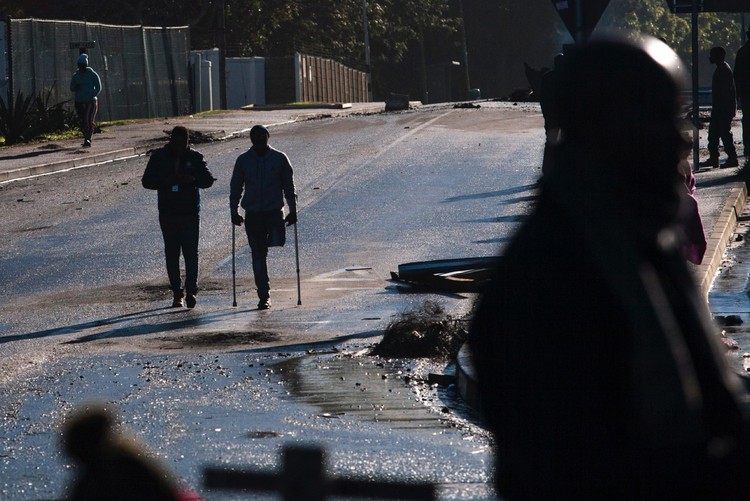
Software problems at the Compensation Fund have delayed payments to injured workers. Archive photo: Ashraf Hendricks
25 February 2020
Compensation for more than 150,000 injured workers has been held up since August last year by a computer software problem at the Compensation Fund.
The Compensation Fund, which is a fund in the Department of Employment and Labour, pays compensation to employees for injury or illness sustained at work, or to relatives of someone who died at work.
There have been almost no payments to injured workers since August last year, according to the newly-established Injured Workers Action Group (IWAG).
IWAG is a coalition of independent organisations designed to represent injured workers who cannot gain access to the new claims management system. The organisation’s media launch took place on 24 February.
Members of IWAG include the South African Private Ambulance and Emergency Services Association, the Occupational Therapy Association of South Africa, the South African Society of Physiotherapy, the South African Medical and Dental Practitioners Association, and Injury on Duty (IOD) account administrators such as CompSol, ColdLink, and Medsol Debtors Management.
The old Compensation Fund claims management system, called Umehluko, was de-activated in August and replaced with a new online system, called Compeasy, which was activated on 1 October 2019.
According to IWAG spokesperson Tim Hughes the system has been dysfunctional since its inception, though it cost R300 million.
Yet, says Hughes, the fund has R60 billion available to pay workers.
In a 24 February press release the Department of Employment and Labour said that the “glitches were being attended to”.
The Department said some users were struggling to access the system. “The migration and cleaning of data from the old to new system, and the general network downtime experienced by external users are also challenges experienced by the department.”
“Since its launch in October, the platform has processed 120,000 medical claims and registered over 8,000 claims,” the Department said.
But Hughes said, “Processed does not translate into payment.”
According to a survey conducted by IWAG, he said, since the introduction of the new system only 1% of processed claims had been paid, compared to the old system which at its best had paid out 80% of processed claims.
“That is not a glitch. That is a failure. The new system was switched on 1 October and it’s never worked,” said Hughes. He said that there had been a general lack of communication and accountability in government on the issue.
The purpose of the IWAG coalition was to get workers’ claims registered and paid, he said.